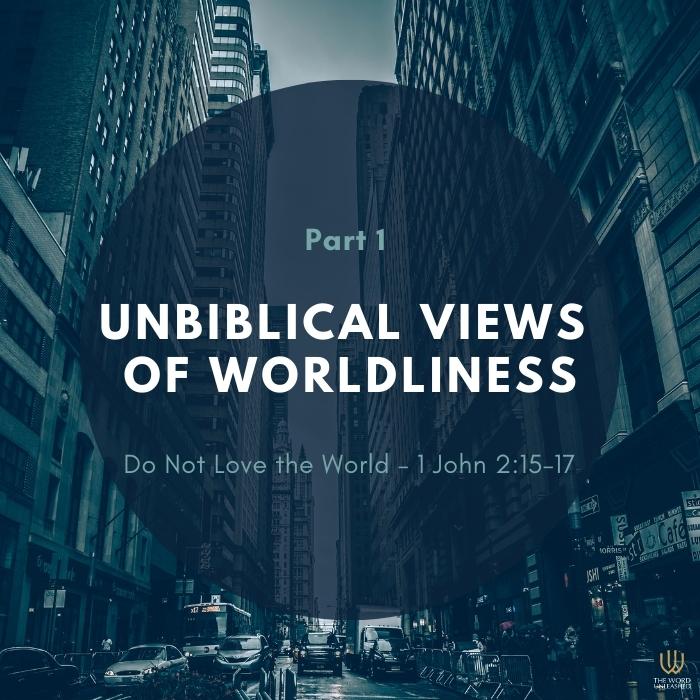
You don’t hear much from today’s pulpits about the concept of worldliness. I think that’s tragic because although the word worldliness isn’t found in Scripture, the concept certainly is. The Apostle John writes, “Do not love the world, nor the things in the world” (1 John 2:15).
That seems like a fairly straight forward command, but it is fraught with potential confusion and misunderstanding. Throughout church history, several terribly flawed approaches to worldliness have been offered, leading to terrible fruit. First, there are some who have defined worldliness as regularly associating with the sinful people of this world. That has led to isolationism and even, in its extreme form, to monasticism.
With the conversion of Constantine during the days of the Roman Empire, the Christian church suddenly found itself intermingled with pagan Roman culture. Christians desperately tried to resist being swept into the debauchery that was rampant in that culture. True Christians had to stay on guard against being lured into that lifestyle and away from Christ. They initially began to do that by separation, but eventually promoted the idea of total isolation from the world—monasticism. This, of course, is not a biblical concept for the Christian life. The apostle Paul writes, “I wrote you in my letter not to associate with immoral people; I did not at all mean with the immoral people of this world, or with the covetous and swindlers, or with idolaters, for then you would have to go out of the world (1 Cor. 5:9–10).
A second wrong approach to worldliness is practicing behaviors that are not directly addressed in Scripture, but that other Christians think are wrong. That’s how a lot of people define worldliness. Tragically, this type of thinking and behaving has led to legalism. As one author put it, “This passage has been used to denounce everything from buttons to beer.” I personally have encountered people who believe that you shouldn’t do things that comfort your body like taking a hot bath (such bathing panders the flesh). I’ve traveled to certain places in Asia where several Christians believed that it was worldly for God’s people to wear deodorant. I’m grateful we don’t believe that here in Texas!
This approach to worldliness fails to distinguish between “Thus saith the LORD” and issues of conscience (Rom. 14–15; 1 Cor. 8–10). Paul writes Romans 14:14, “I know and am convinced in the Lord Jesus that nothing is unclean in itself; but to him who thinks anything to be unclean, to him and it is unclean” (Rom. 14:14). Honest, biblical decisions of the conscience don’t define worldliness.
A third wrong way to approach worldliness is by forbidding non-sinful, pleasurable human activities. This type of thinking is normally labeled asceticism, which punishes the body by refraining from anything that is pleasurable. This has led some to reject marriage, and has even led others to reject sex in marriage. In fact, asceticism has led to rejecting any forms of music and literature that aren’t built on Scripture.
A fourth wrong way to approach worldliness is to create your own definitions to help justify your choices. This is commonly known as rationalization. Worldliness, therefore, is not what I do; it’s what you do.
A fifth wrong approach is simply dismissing the concept of worldliness as if it’s trivial or unimportant. Sadly, this is what most professing Christians do today. They either deny Scripture’s clarity and/or deny its authority.
Over the next few blogs, we will examine together the issue of worldliness. It is my prayer that we will allow God’s Word to define worldliness in order to properly understand what we should not love. In addition, we need God’s Word and His Spirit to teach and warn us about the soul-destroying dangers of worldliness.